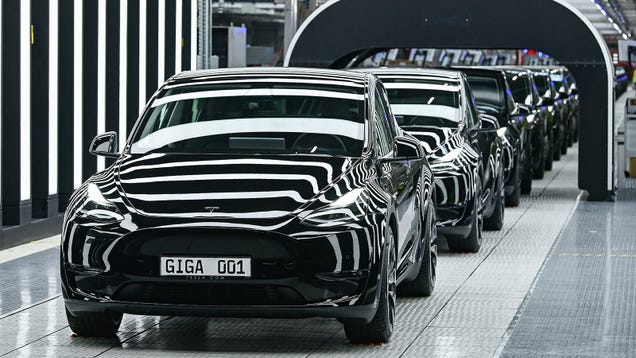Tesla: A Look at the Electric Car Company’s Financial Health
In recent months, Tesla has been making headlines for a variety of reasons. From rumors of CEO Elon Musk losing billions during his takeover of Twitter to a wave of price cuts around the world, some may assume that the company is facing financial troubles. However, despite these rumors, Tesla is actually doing quite well financially.
In fact, the electric car company is making a profit of $15,000 on every vehicle sold. This profit margin is significantly higher than that of traditional automakers, who typically make around $1,000 in profit per vehicle sold. With this impressive profit margin, Tesla has plans to invest in new ventures and continue its growth trajectory.
Let’s take a closer look at Tesla’s financial health and what it means for the company’s future.
Tesla’s Profitability
One of the key factors contributing to Tesla’s financial success is its profitability. As mentioned, the company makes a profit of $15,000 on every vehicle sold. This is due in part to the fact that Tesla’s vehicles are priced higher than those of traditional automakers. However, it’s also because Tesla has been able to reduce its production costs over time.
Tesla has invested heavily in its production facilities and supply chain, which has allowed the company to streamline its manufacturing process and reduce costs. Additionally, Tesla’s focus on electric vehicles has allowed it to take advantage of government incentives and tax credits, which further reduce its production costs.
Tesla’s Revenue Growth
Another factor contributing to Tesla’s financial success is its revenue growth. In 2020, Tesla’s revenue increased by 28% compared to the previous year. This growth was driven by an increase in vehicle deliveries, as well as growth in Tesla’s energy storage and solar businesses.
Tesla’s energy storage and solar businesses have become increasingly important to the company’s overall revenue stream. In 2020, these businesses accounted for 6% of Tesla’s total revenue. While this may seem small, it’s worth noting that these businesses are still in their early stages and have significant growth potential.
Tesla’s Cash Reserves
Tesla’s financial health is also reflected in its cash reserves. As of the end of 2020, Tesla had $19.4 billion in cash and cash equivalents. This is a significant increase from the $6.3 billion the company had in cash reserves at the end of 2019.
Tesla’s strong cash position is important for a few reasons. First, it gives the company the flexibility to invest in new ventures and continue its growth trajectory. Second, it provides a cushion in case of any unexpected financial challenges.
Tesla’s Debt
While Tesla’s financial health is generally strong, the company does have a significant amount of debt. As of the end of 2020, Tesla had $13.5 billion in long-term debt and $2.2 billion in short-term debt.
However, it’s worth noting that Tesla’s debt is largely tied to its growth strategy. The company has invested heavily in its production facilities and supply chain, as well as in new ventures like its energy storage and solar businesses. While this has resulted in significant debt, it has also allowed Tesla to position itself for long-term success.
Tesla’s Future Plans
With its strong financial position, Tesla has ambitious plans for the future. One of the company’s main goals is to continue to increase its production capacity. Tesla plans to build new factories in Texas and Germany, which will allow it to produce more vehicles and reduce its production costs even further.
Additionally, Tesla is investing heavily in its energy storage and solar businesses. The company recently announced plans to build a large-scale battery manufacturing facility in Texas, which will help it meet growing demand for energy storage solutions.
Finally, Tesla is also working on developing new technologies like autonomous driving and electric semi-trucks. These technologies have the potential to significantly disrupt the automotive industry and position Tesla as a leader in the space.
Conclusion
Despite rumors of financial troubles, Tesla is actually doing quite well financially. The company’s profitability, revenue growth, cash reserves, and ambitious plans for the future all point to a strong financial position. While Tesla does have significant debt, this is largely tied to its growth strategy and should not be cause for concern.
As Tesla continues to invest in new ventures and technologies, it’s likely that the company will continue to grow and expand its market share. For investors looking for a company with strong financials and ambitious plans for the future, Tesla is certainly worth considering.


